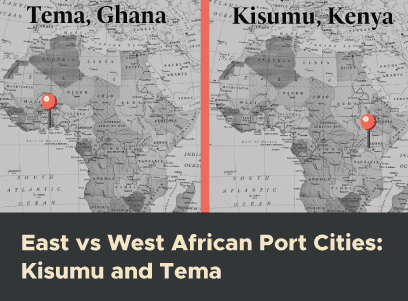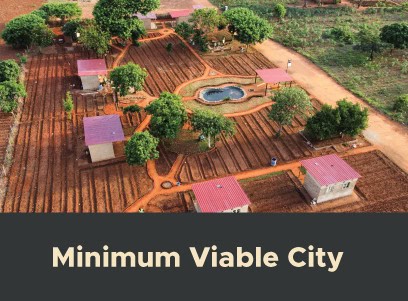Prospera, ZEDE Legislation and More: Charter Cities Commentary
Hi Everyone,
Prospera, Honduras just launched on the island of Roatan. It is a ZEDE (Zona de Empleo y Desarollo Economico), the legacy of Paul Romer’s time in Honduras promoting charter cities. It has substantial autonomy, different taxes, different courts, different labor law, and more. It is one of the most innovative jurisdictions in the world.
First, a bit of history. The ZEDE legislation was passed in 2013. It allows for the creation of a special jurisdiction with an almost unprecedented amount of autonomy. The only recent comparison is the Dubai International Financial Center, which, as the name suggests, focuses exclusively on finance. The ZEDE legislation allows for different labor law, environmental law, business registration, dispute resolution, and more. It is more analogous to Hong Kong, or at least the Hong Kong ideal, of one country, two systems.
In 2013 and 2014 rumors swirled about ZEDE projects, including a port in the Gulf of Fonseca, but nothing materialized. I even moved to Honduras for six months in 2014, at the time the murder capital of the world, to be closer to the action. As late as 2017, the Honduran government was saying projects were about to begin.
The ZEDE legislation is the successor to the RED (Regiones Especiales de Desarrollo) legislation, which Romer helped introduce to build charter cities. Romer had a falling out with the Honduran government in 2012. Shortly after his departure, the RED legislation was declared unconstitutional. The ZEDE legislation was passed to address the constitutional shortcomings of the RED legislation, though it also benefitted from seeing the Supreme Court judges who ruled against the RED legislation fired. To be fair, the government claims they were fired for a ruling on a police brutality case, which I am wont to believe. If there was sufficient government support behind ZEDEs to fire Supreme Court justices, it would not have taken seven years for the first ZEDE to be launched.
I worked with much of the Prospera team at NeWAY Capital, largest shareholder in the project. I left around the time they pivoted to Honduras, 2.5 years ago. I was skeptical, as Honduras was the place projects went to die. Years had gone by without projects gaining meaningful traction and I expected them to run out of funding before launching. I’m happy to have been proven wrong.
Congratulations to Erick Brimen and the team. It is a lot of work to create a new jurisdiction, especially one as innovative as Prospera. The Charter Cities Institute has two team members spending approximately two thirds of their time on developing a “Governance Handbook,” a guide to the governance of a new jurisdiction. It will likely take about 9 months to complete, and that is just for the handbook, not implementation.
With that, let’s get into some details. They have an easy to use business registry, their adjudication system looks excellent, and their architecture is beautiful.
Prospera is working with an Estonian team that helped design the famous Estonian e-governance system. Their business registry is cheap and quick, at least on paper. I can’t find an online portal, but presumably that will be developed shorty.
The adjudication system looks excellent. One of the arbitrators was previously on the Arizona Supreme Court. Tom Bell writes on Facebook that they’re running on a modified version of Ulex, an open source legal code.
Their residences are designed by Zaha Hadid. They are striking. This would be a fantastic resort community.
Residency costs $1300 annually, unless you’re Honduran, in which case it costs $260. Becoming a resident also requires signing an “Agreement of Coexistence,” a legally binding contract between Prospera and the resident. Prospera, therefore, cannot change the terms without exposing itself to legal liability. Most governments have sovereign immunity, this goes a step beyond removing that, with a contract that clearly defines the rights and obligations on both sides.
After signing the Agreement of Coexistence, all residents are required to buy general liability insurance which will insure themselves against both civil and criminal liability. General liability insurance, as well as criminal liability insurance, has been proposed by economist Robin Hanson, among others. I’m quite sympathetic to this idea on a theoretical level. Societies where people are responsible for the costs and benefits of their actions produce good social outcomes. Insurance could get people to adapt their previously costly behavior.
Their regulatory system is similarly innovative. While the ZEDE legislation allows ZEDEs to develop social regulations, education systems, welfare programs, and more, Prospera has chosen to only focus on industrial regulations. Whether social regulations are still governed by default Honduras law is unclear.
Reciprocity for drugs and medical devices has long been a hobbyhorse for libertarians. The UAE has drug reciprocity with a number of countries, though I’m unaware of any systematic analysis of it. Prospera has taken reciprocity ten steps further, to full reciprocity with OECD countries for industrial regulations, including agriculture, health, construction, manufacturing, energy, mining, food, waste management, finance, and insurance. Prospera also has regulatory reciprocity with Honduras.
They don’t stop there. Businesses can even propose new regulatory systems, which Prospera has the authority to accept. If companies don’t want any regulations, they can just accept treble damages for liability. The enforcement mechanism is liability. Any Prospera resident, or Prospera itself, can sue if a firm breaches their regulations.
This is the most innovative approach to governance I have ever seen. Getting the implementation right will be challenging. On one hand, this could be an effective mechanism to attract foreign investment. An American company could defer to American regulations, a Honduran company could defer to Honduran regulations, and so on. This approach makes the cost of regulatory compliance associated with entering a new market effectively fall to zero.
The advantage of the ZEDE legislation is that now that Prospera exists, it is easy to expand. The owner of a business park, for example, could choose to incorporate as part of the Prospera regime. This unbundling of governance with the physical infrastructure of the project allows for more rapid scaling than most charter cities where governance and physical infrastructure are built in tandem.
Prospera, while the most advanced special jurisdiction, still has a ways to go. There are three key challenges to overcome. First, the governance system is untested. What does outsourcing regulatory enforcement with liability look like in practice? Second, building agglomeration. Roatan is an island with 60,000 residents and poor roads and high electricity prices. Success, at least for the Roatan portion of the project, requires getting a critical mass of residents and improving infrastructure. Third, Honduras has tricky politics. The ZEDE regime is identified with the current president, Juan Orlando Hernandez, who’s brother was arrested on drug trafficking charges and who has been accused by US prosecutors of accepting bribes to protect drug traffickers.
While the remaining challenges are not trivial, I wouldn’t bet against the Prospera team. I thought Honduras was the place projects went to die. I was wrong. Prospera’s launch is an important milestone in the move towards charter cities and innovative governance.
Other News:
Portugal is creating an e-residency program similar to Estonia’s. This is another step to the unbundling of the modern notion of citizenship. That being said, the e-residency market will probably only support a handful of programs. It isn’t clear why anyone would choose the Portugal program over Estonia, for example.
Titus Gebel of Free Private Cities formed a partnership with FEMOZA, one of the leading free zone organizations. They will be setting up a global SEZ directory, as well as establishing a set of SEZ best practices. It is interesting to see how the charter cities space is building out partnerships with mainstream organizations.
There is increasing discussion of the second order effects of covid in emerging markets, with two important trends. First, there is the risk of widespread hunger. Current estimates suggest that 265 million people could face acute hunger by year’s end, double the previous number. Second, many emerging markets will be unable to service debts. There is talk of debt relief, though China is asking for natural resources, such as the third largest copper mine in Zambia, in exchange for debt relief.
The Wikipedia page of Brasilia is worth a read. I stumbled across it doing research for my book. It states, “Though the overpopulation has made Brasilia no longer a pure utopia with incomparable modernity”. Somehow overpopulation is at fault, not poor planning.
The Quayside project of Sidewalk Labs in Toronto is officially dead. Sidewalk labs is the biggest missed opportunity in the cities space over the last decade. They went from wanting to build a city, to redeveloping a few dozen acres, and unfortunately weren’t even able to pull that off. It is also a testament to the pervasive NIMBYism in the west today. Imagine not wanting a company to build the future of urban development in your city.
As always,
Thank you for reading.
Learn more about our work here.







